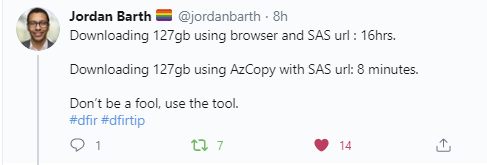KnowledgeC. This is
quite known source of forensic artifacts, many forensic tools even extract
relevant data from it automatically (e.g. Magnet AXIOM, Plaso also has a parser
for it - mac_knowledgec).
But now we already
have macOS Catalina (10.15), so it’s high time to look at the data source
again.
In fact, there are two
knowledge databases on macOS: system and user context. The first is located
under /private/var/db/CoreDuet/Knowledge, the second – under
/Users/username/Library/Application Support/Knowledge.
Let’s start from the
first one, system context database. It was obtained from a macOS image
presented at recent Champlain CTF.
There are 16 tables in
the database:
System context database tables
Most of the tables are
empty. The most interesting things start from ZOBJECT table. ZSTREAMNAME column
contains information about the data streams. In the database I’m looking at
there are several streams:
com.apple.spotlightviewer.events
/safari/history
/media/nowPlaying
/display/isBacklit
/app/inFocus
/app/activity
/activity/level/feedback
/activity/level
ZVALUESTRING column contains
additional information. For example, for /app/inFocus is shows the application
used, for /safari/history – URL. That’s not all, for Safari related activity
and /media/nowPlaying it contains additional metadata in ZSTRUCTUREDMETADATA
table, corresponding ID can be found in the column with the same name. For
example, for Safari history it will store webpage’s title in Z_DKSAFARIHISTORYMETADATAKEY__TITLE
column:
Of course, we
shouldn’t forget about the timestamps: there are three columns in ZOBJECT
table: ZSTARTDATE, ZENDDATE and ZCREATIONDATE, all contain timestamps in Mac
Absolute Time format.
It’s time for an SQL
query!
Let’s move on to the
user context database. I got this one from our iMac. It’s used very often, so
there should be a lot of data in the database.
Tables are the same –
we have 16 of them. Let’s look inside ZOBJECT table. Here are the streams
available in ZSTREAMNAME:
/portrait/topic
/portrait/entity
/notification/usage
/knowledge-sync-deletion-bookmark/
/knowledge-sync-addition-window/
/display/isBacklit
/app/usage
/app/intents
First of all, we have
some information about database synchronization. It means that it may contain
not only information about this iMac, but also synced data, for example, from
an iPhone. There’s a table called ZSYNCPEER that includes some information
about these devices:
There’s another useful
table – ZSOURCE. Here we can find was it a WhatsApp message, a phone call or an
SMS. Also it can help us to understand some not common data types. For example,
we can see that /portrait/topic refers to Pinterest, /portrait/entity – to
Safari.
Let’s look inside
ZSTRUCTUREDMETADATA, especially at Z_DKINTENTMETADATAKEY__SERIALIZEDINTERACTION
column. Here we can see some BLOBs. Let’s export one of them, it can be done,
for example, with DB Browser for SQLite. In fact, it’s a binary plist. But
that’s not all, there is another plist inside! It’s inside NS.data. In my case
it was a WhatsApp message, and I could get not only the phone number (it’s also
available at in Z_DKINTENTMETADATAKEY__DERIVEDINTENTIDENTIFIER), but also
contact’s name. The same can be done with phone calls – we can recover the
phone number. Unfortunately, we can’t recover the message body.
Again, we can gather a
lot of information about the usage of applications from /app/usage stream:
Let’s write an SQL query
to gather this information:
As you can see, the
first record is April 4, 2020, today is May 3, 2020, so the database stores
data for only 30 days.
So, what other similar
data sources are available? For example, another interesting database is
located under /private/var/db/CoreDuet/People. It’s interaction.db. There are
11 tables inside:
If we look inside ZINTERACTIONS and ZCONTACTS, we can gather some information about calls the user performed. Again, it seems the data is written to the database as part of synchronization process, and, of course, it’ll contain different datasets – it’ll depend on the device.



























